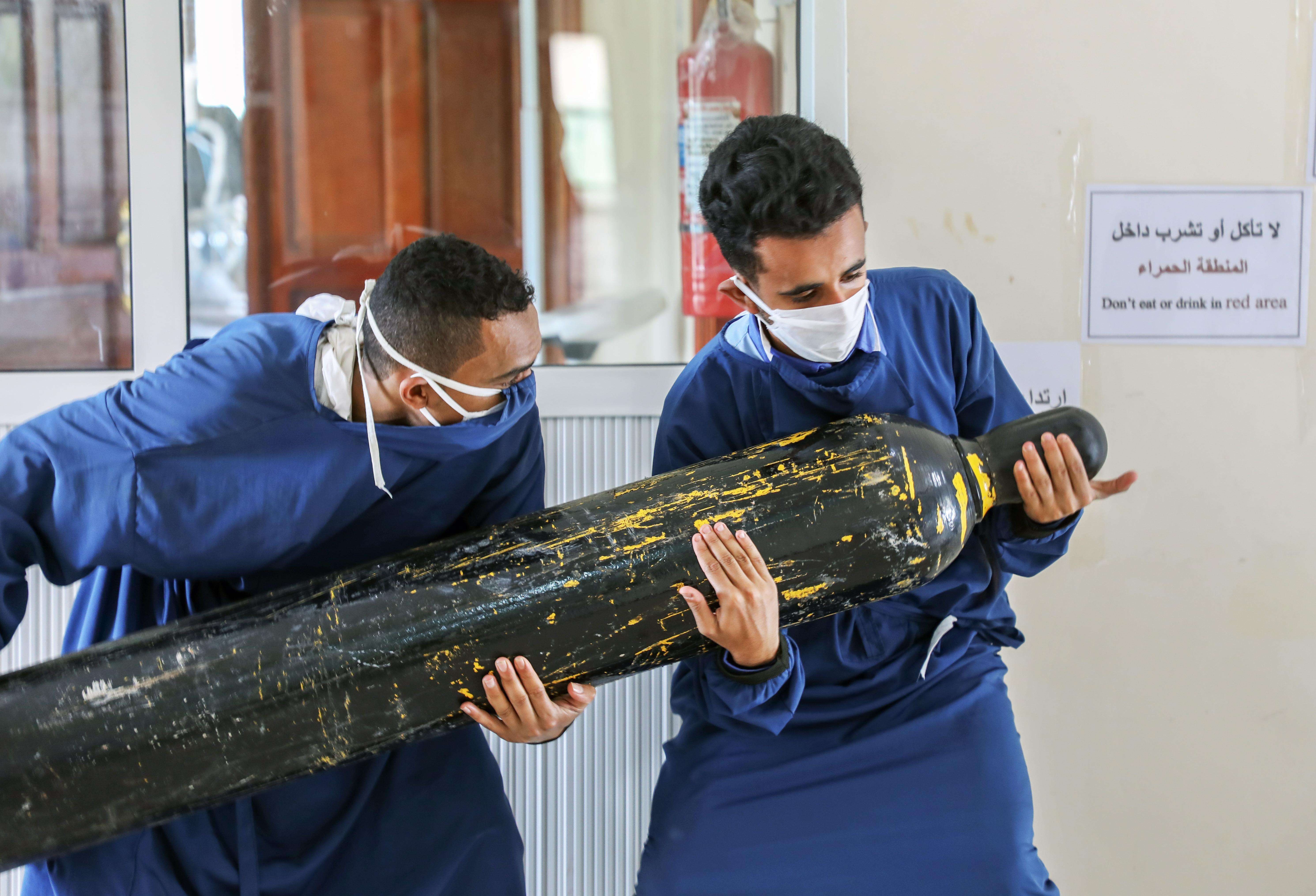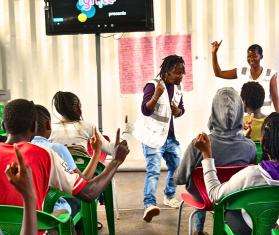One year into the pandemic, Doctors Without Borders/Médecins Sans Frontières (MSF) teams are still racing to respond to COVID-19—and to keep our other lifesaving projects running despite extraordinary pressures. This timeline of the COVID-19 response captures some of the milestone moments over the course of the emergency.
As the new coronavirus spread, MSF followed in its tracks. Our teams responded and adapted to COVID-19 in the more than 70 countries where we have existing medical projects. We launched emergency responses in many others—including temporary operations in Europe and the United States. This is an unprecedented global emergency in many ways. Yet, at its heart, our response to COVID-19 is not so different from our other work. We focus on communities where the needs are greatest, and we reach out to the most vulnerable people. Here is a look back at some of the milestone moments of our pandemic year.
January 27, 2020: First responders in Hong Kong
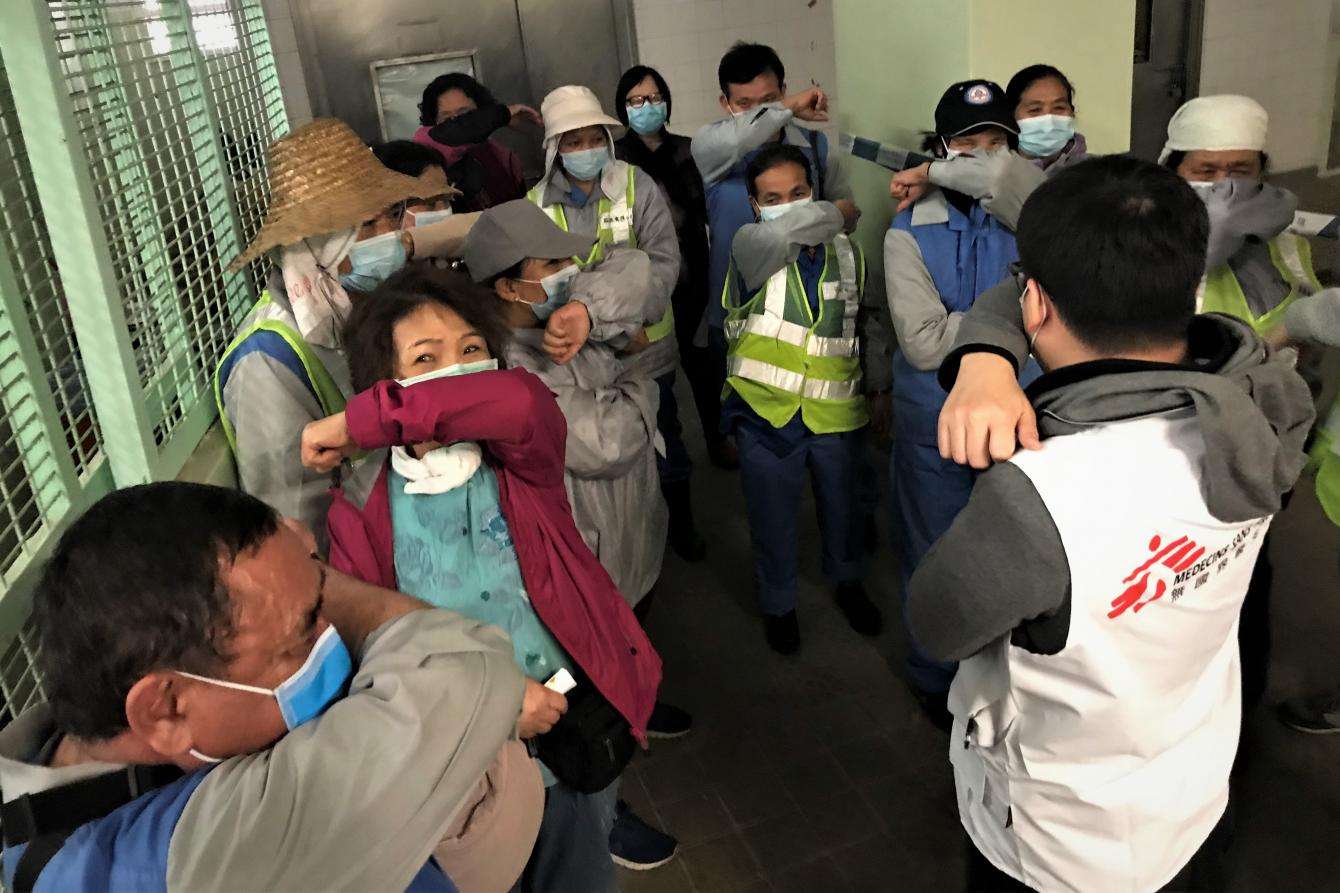
Our first dedicated response to the novel coronavirus launches in Hong Kong, focusing on health education for vulnerable groups. Three days later, the World Health Organization will declare the coronavirus outbreak a Public Health Emergency of International Concern. Two weeks later, we will send 3.5 metric tons of medical protective equipment to Wuhan Jinyintan Hospital and 1 metric ton of personal protective equipment to the Hong Kong St. John Ambulance service.
February 7, 2020: Preparing for outbreaks in Southeast Asia
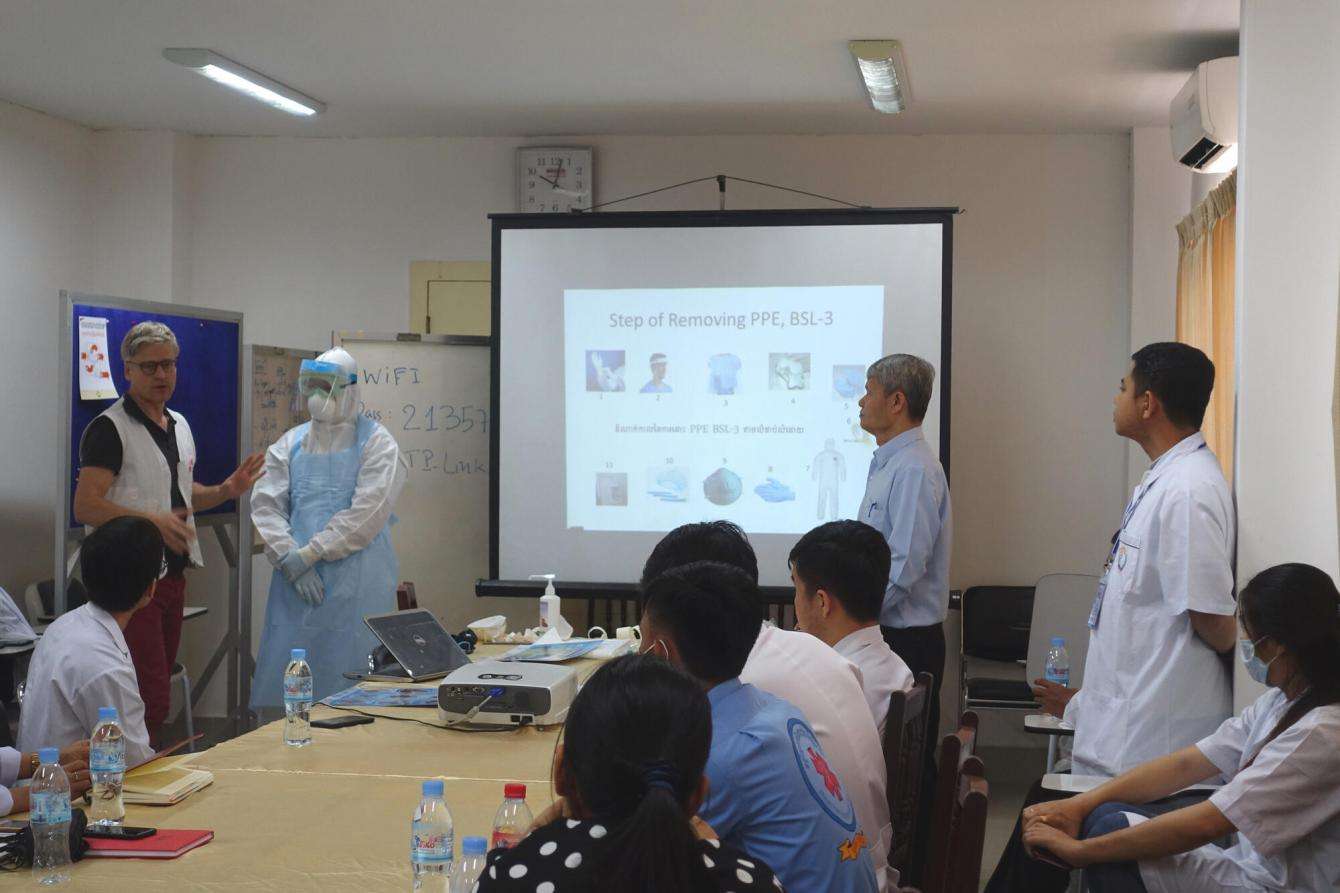
MSF teams start infection prevention and control trainings in Cambodia and Papua New Guinea to prepare for potential outbreaks. A few days later, on February 11, the WHO gives a name to the disease caused by the novel coronavirus: COVID-19.
March 8, 2020: European operations start
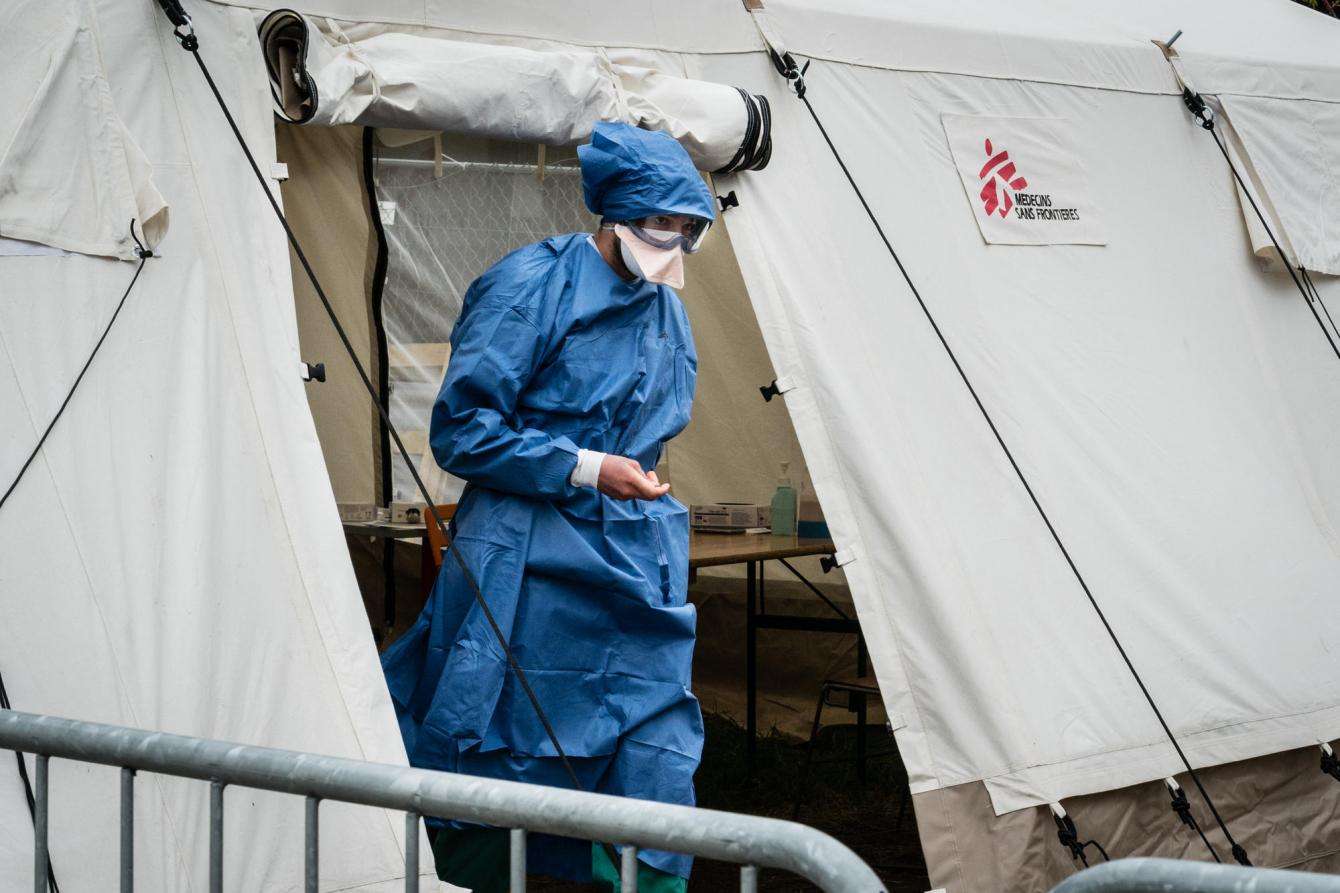
MSF launches its first COVID-19 operations in Italy, treating patients, and improving infection prevention and control measures in four hospitals and several retirement homes. By the end of the month, MSF will set up COVID responses in Spain, Switzerland, France, and Belgium. We are also strengthening epidemic preparedness and sustaining our medical humanitarian projects in more than 70 other countries.
March 11, 2020: A pandemic is declared
The WHO declares that the COVID-19 outbreak is a pandemic, with the director-general urging all countries to act quickly to “detect, test, treat, isolate, trace, and mobilize their people in the response.”
March 15, 2020: Medical supply shortages
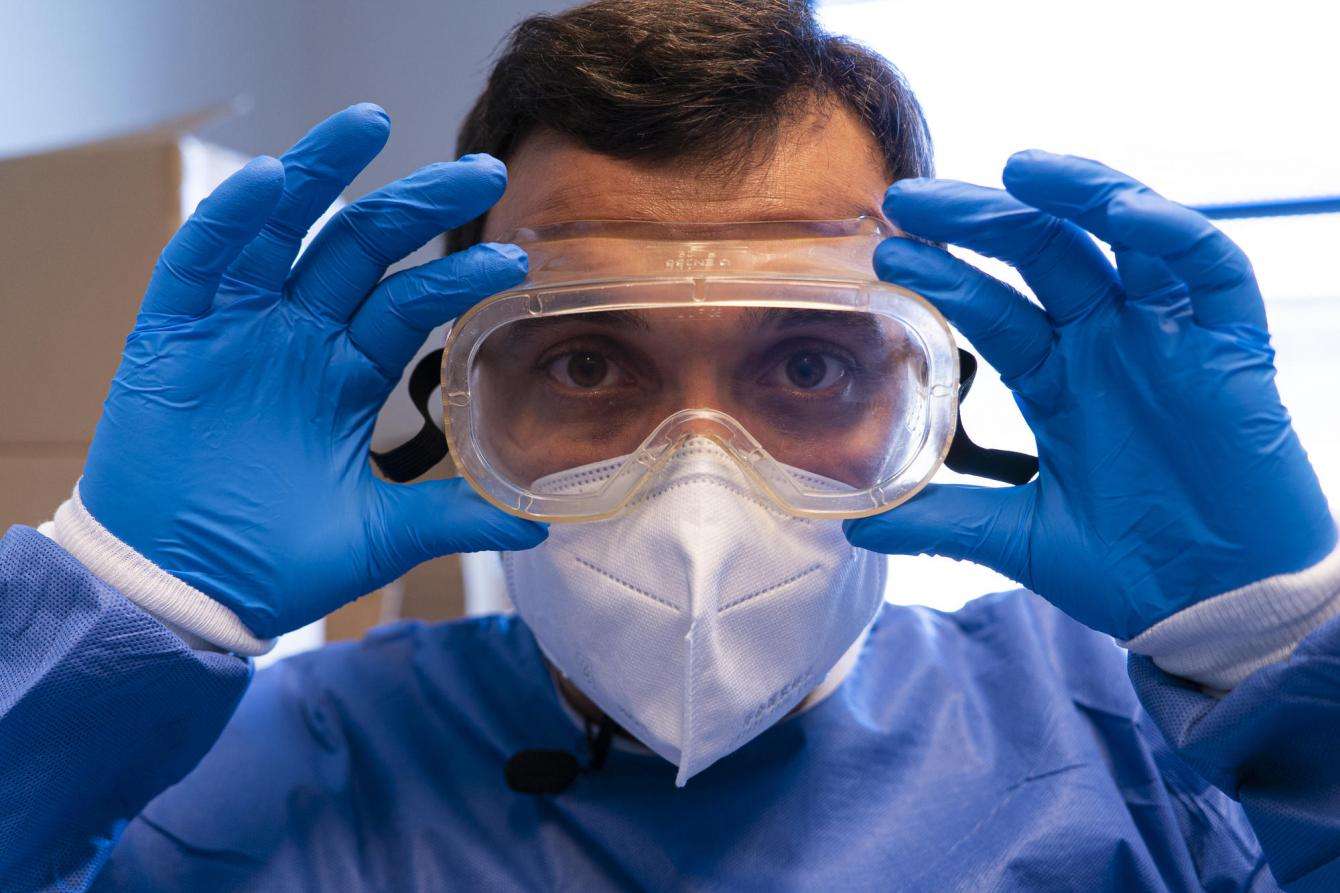
The European Commission places restrictions on exporting personal protective equipment (PPE) as frontline health workers face critical shortages. MSF calls for greater solidarity to ensure that essential medical supplies reach the places where they are most urgently needed.
March 26, 2020: US cases soar
The United States becomes the country with the most COVID cases (81,321). One year later, as of March 1, 2021, the US will have more than 28 million cases—ahead of India, with more than 11 million cases, and Brazil, with more than 10 million.
April 11, 2020: Responding to an emergency in the US
We launch an unprecedented response to the pandemic in the US, working first with partner organizations in New York that provide services for people who are homeless or housing insecure. Over the next six months, MSF teams will work with some of the communities hardest hit by the pandemic—including migrant farmworkers in Florida, Native American communities in the Navajo Nation and Pueblos, and vulnerable groups in Puerto Rico. We will also provide infection prevention and wellness support for staff in nursing homes and long-term care facilities in Michigan and Texas.
May 6, 2020: A growing crisis in Mexico
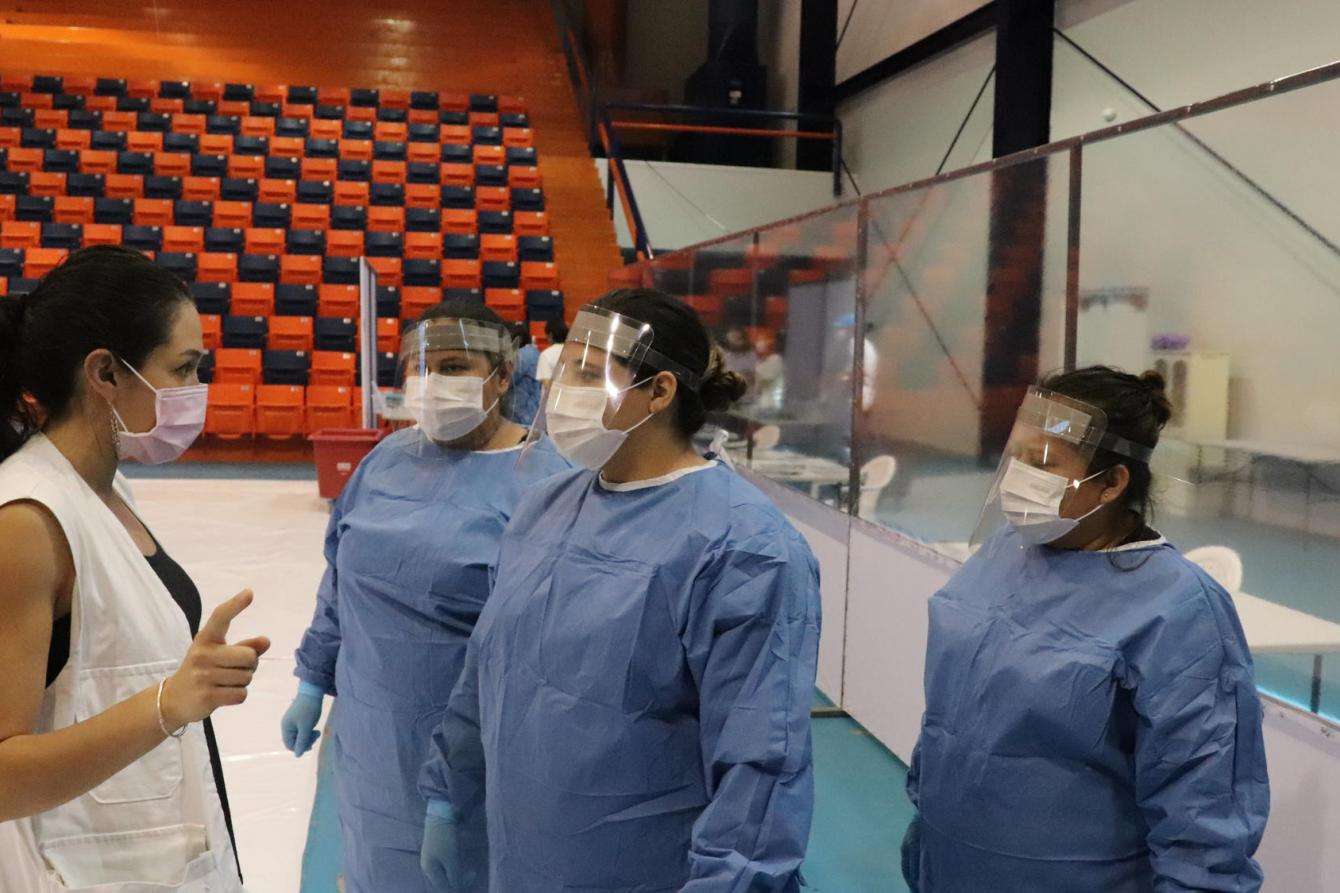
MSF starts treating COVID-19 patients in Tijuana, Mexico, working in a converted basketball stadium. The former home of the Tijuana Zonkeys becomes a 50-bed medical ward, relieving pressure on the nearby general hospital. MSF will open two more treatment centers in Reynosa and Matamoros by the end of the month.
June 2, 2020: Alarming numbers in Yemen
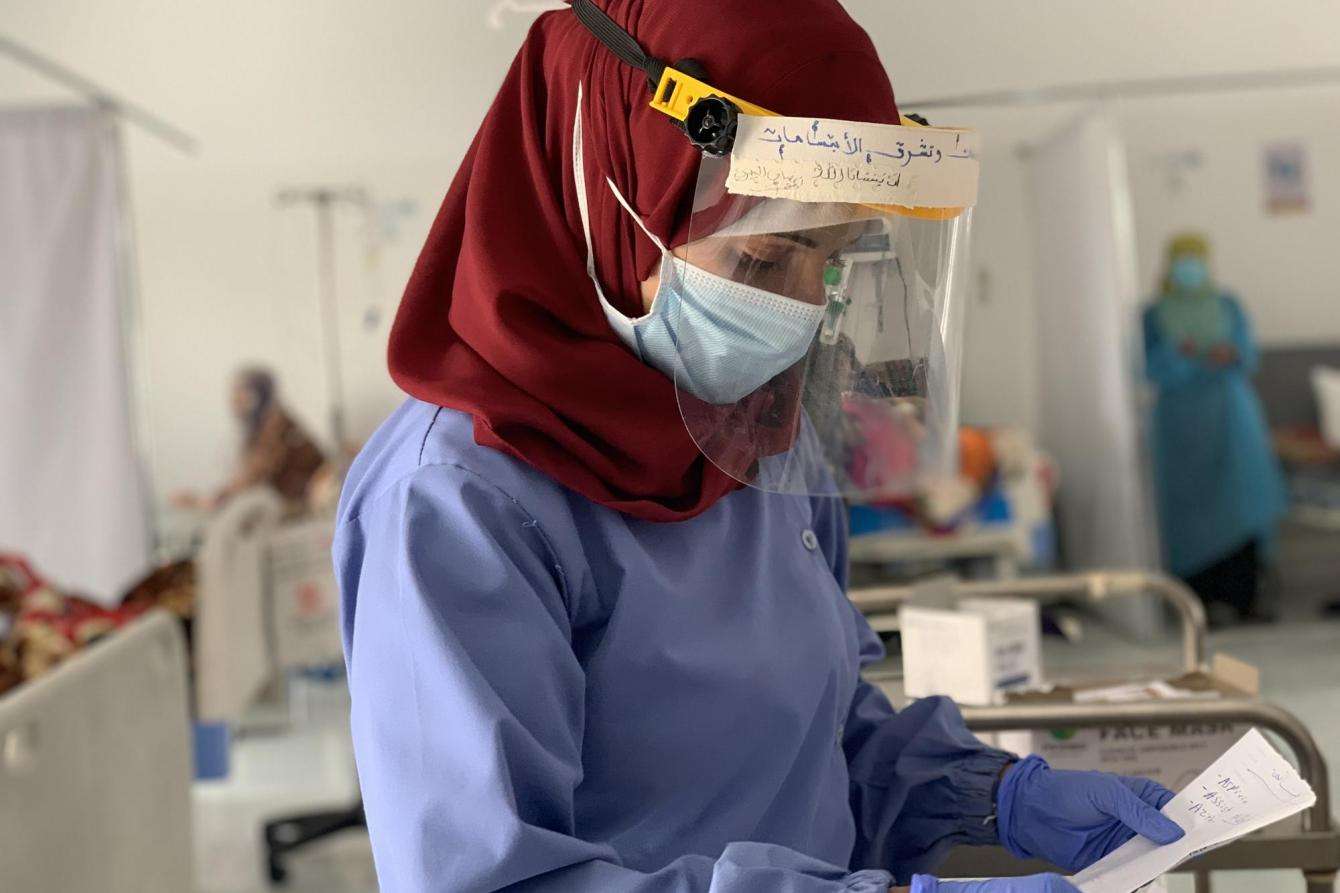
MSF teams running the only COVID-19 treatment center in the city of Aden, Yemen, report alarming numbers of severe COVID-19 patients, high death tolls, and a shortage of ventilators and oxygen concentrators. We will provide more than 2.3 million items of COVID-19 medical and laboratory equipment, protective gear, and medications to Yemen by the end of August.
June 9, 2020: Equitable access
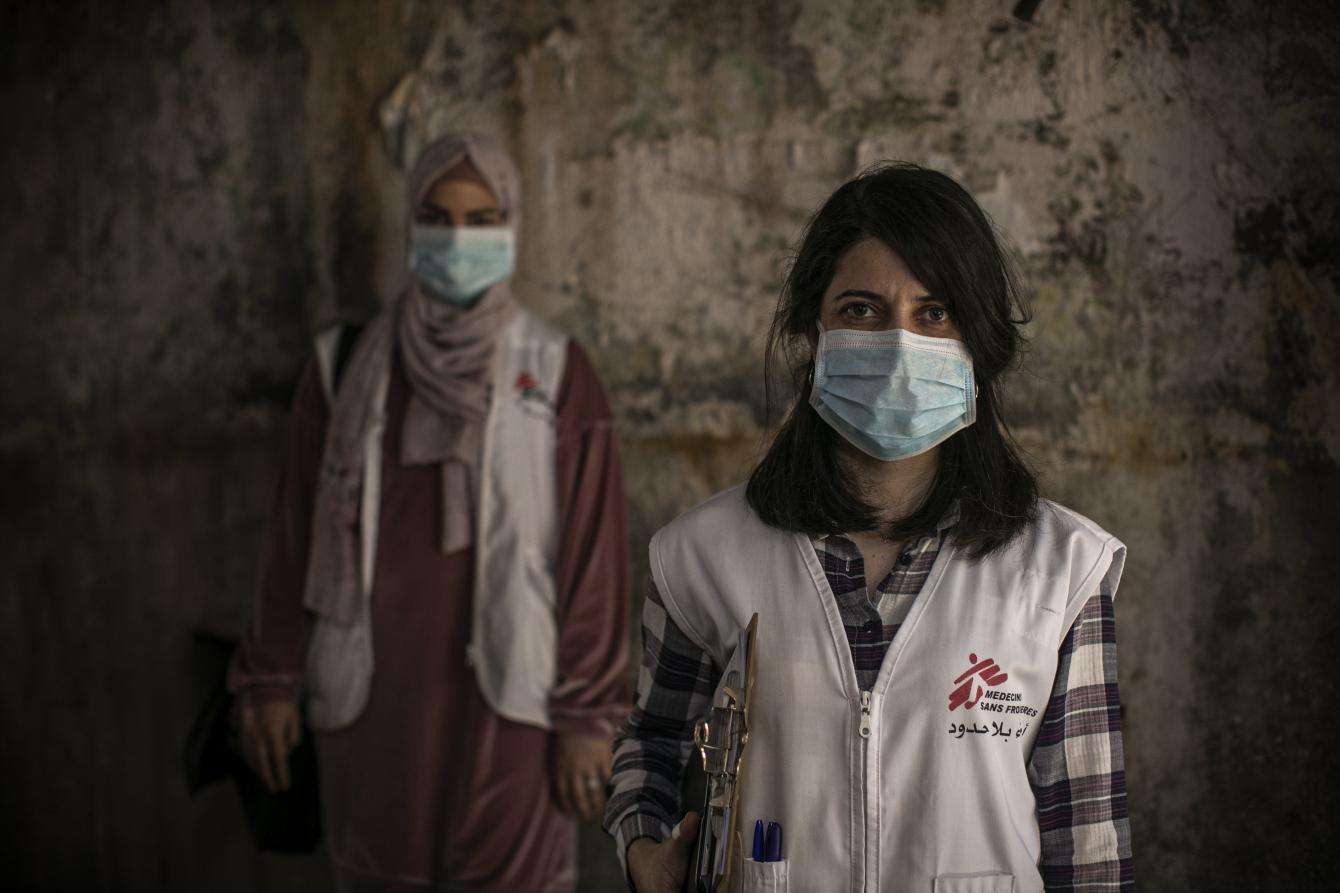
Addressing a high-level panel at the UN Economic and Social Council, MSF International President Dr. Christos Christou calls for equitable global access to COVID-19 treatments and vaccines. “You will not be safe from COVID-19, until everyone is safe from COVID-19,” he says. “From the poorest displaced families to the richest individuals: This virus will continue to be a global threat for as long as it takes for vaccines and treatments to be available to all.”
June 18, 2020: Disaster unfolds in Brazil
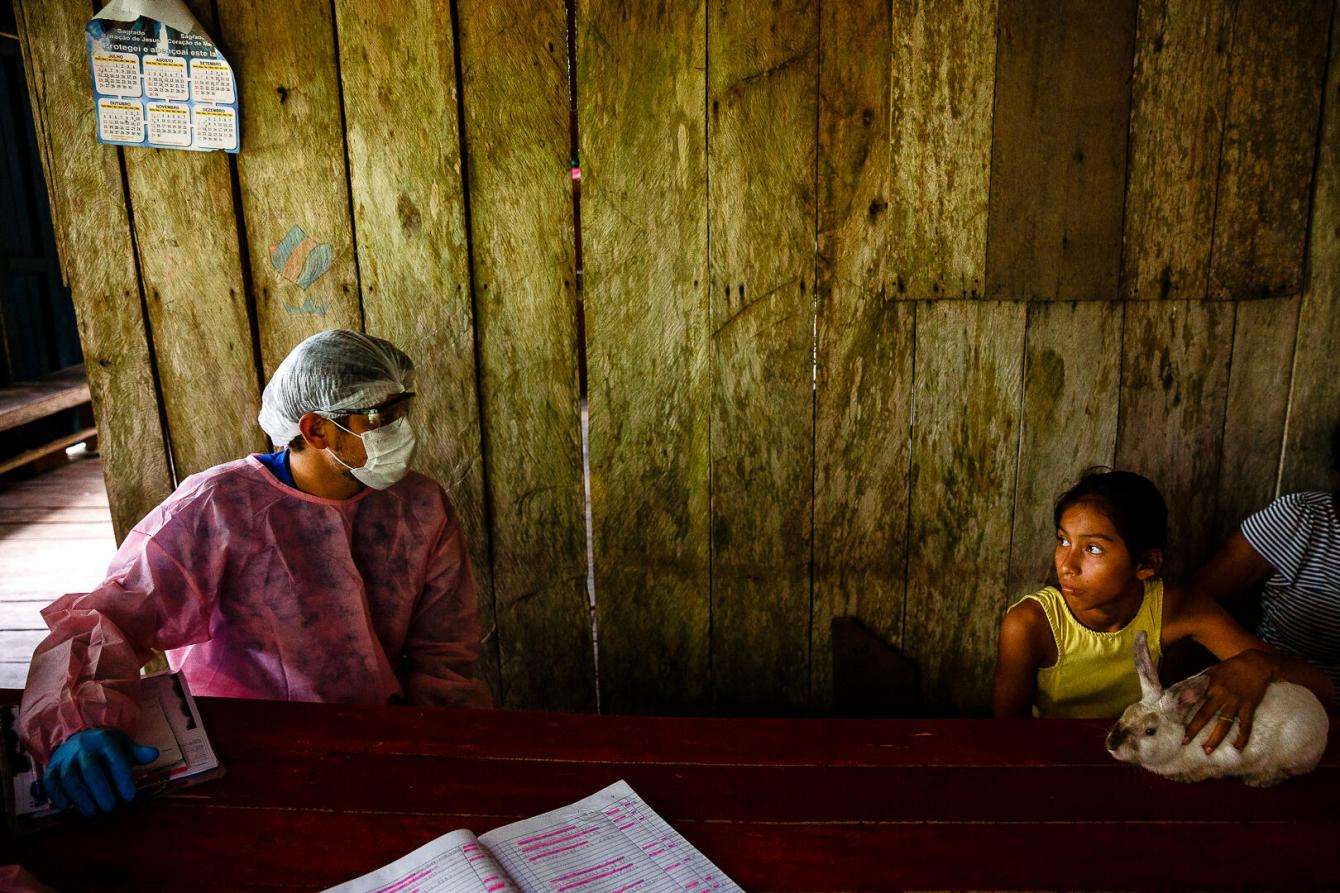
As COVID-19 cases in Brazil approach the 1 million mark, MSF calls for a stronger, more focused response from the central government to avoid greater disaster. At the time, MSF is running emergency operations in Amazonas and Roraima states, and in São Paulo and Rio de Janeiro. We serve a range of vulnerable groups, including indigenous and riverside communities, as well as people living in slums and favelas.
July 14, 2020: Belgium’s humanitarian crisis
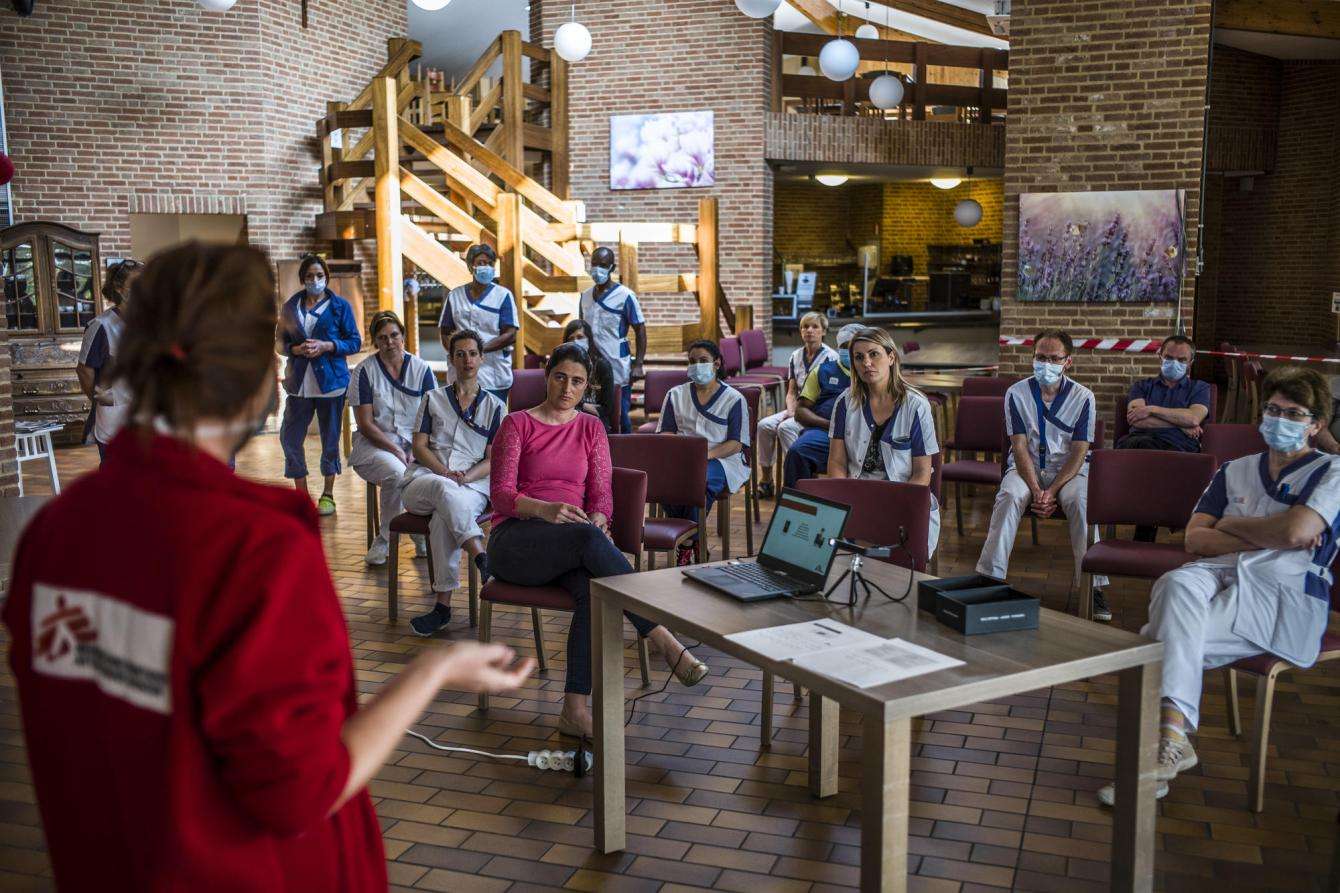
MSF issues a report highlighting a humanitarian crisis in Belgium’s nursing care homes. By the end of June, 6,200 care home residents have died of COVID-19—accounting for 64 percent of all deaths due to the coronavirus in Belgium. MSF recommends concrete measures to improve protection for staff and residents of these facilities.
August 30, 2020: India breaks a record
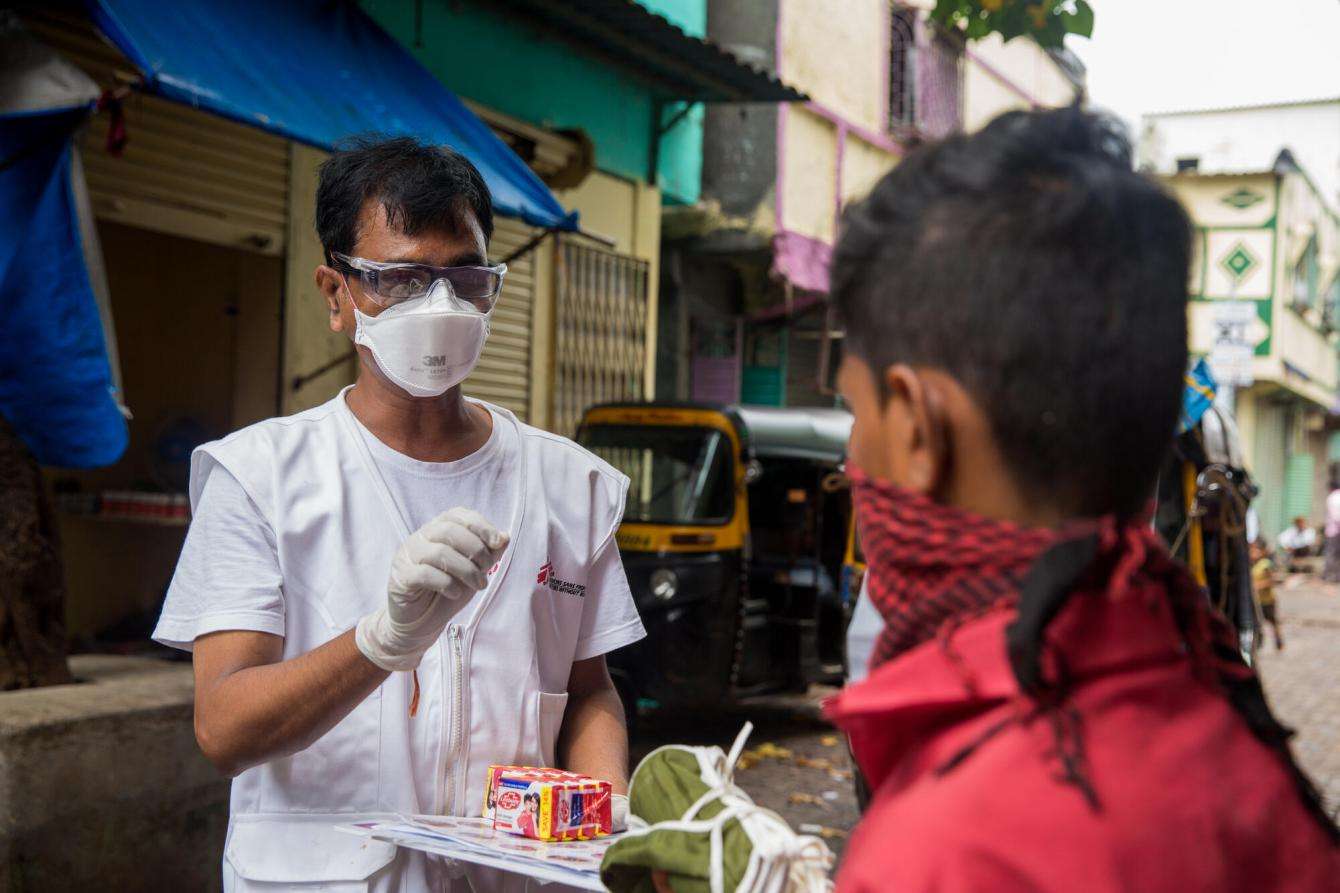
India records 78,761 new cases in one day, the highest single-day, single-country increase in cases so far. MSF supports physical and mental health care for COVID-19 patients at a 100-bed treatment center in a converted sports complex in Patna. Teams also support epidemic response efforts in Mumbai and New Delhi.
August 31, 2020: MSF reports on COVID response
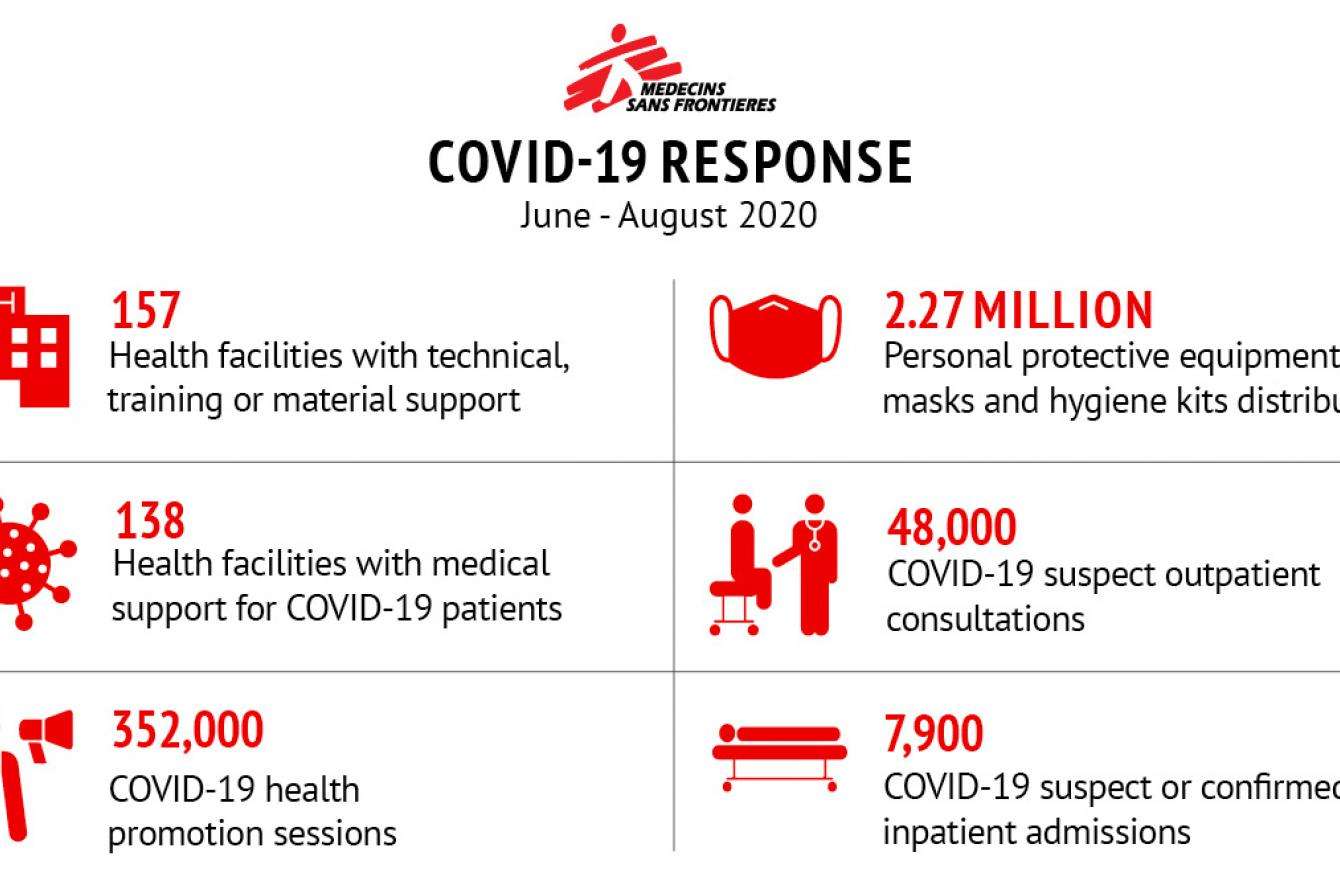
During the summer of 2020, MSF distributes 2.27 million items of personal protective equipment, masks, and hygiene kits to communities where they are needed most. Our second global accountability report, covering the period from June to August 2020, highlights work in 250 projects across 63 countries.
September 22, 2020: Crises multiply in Syria
MSF sounds the alarm about rising numbers of COVID-19 cases in northwestern Syria, where curbing the spread of the disease in overcrowded camps is an enormous challenge. Of those who have tested positive for COVID-19 in this region, almost 30 percent are health workers.
September 25, 2020: Escalating emergency in Iraq
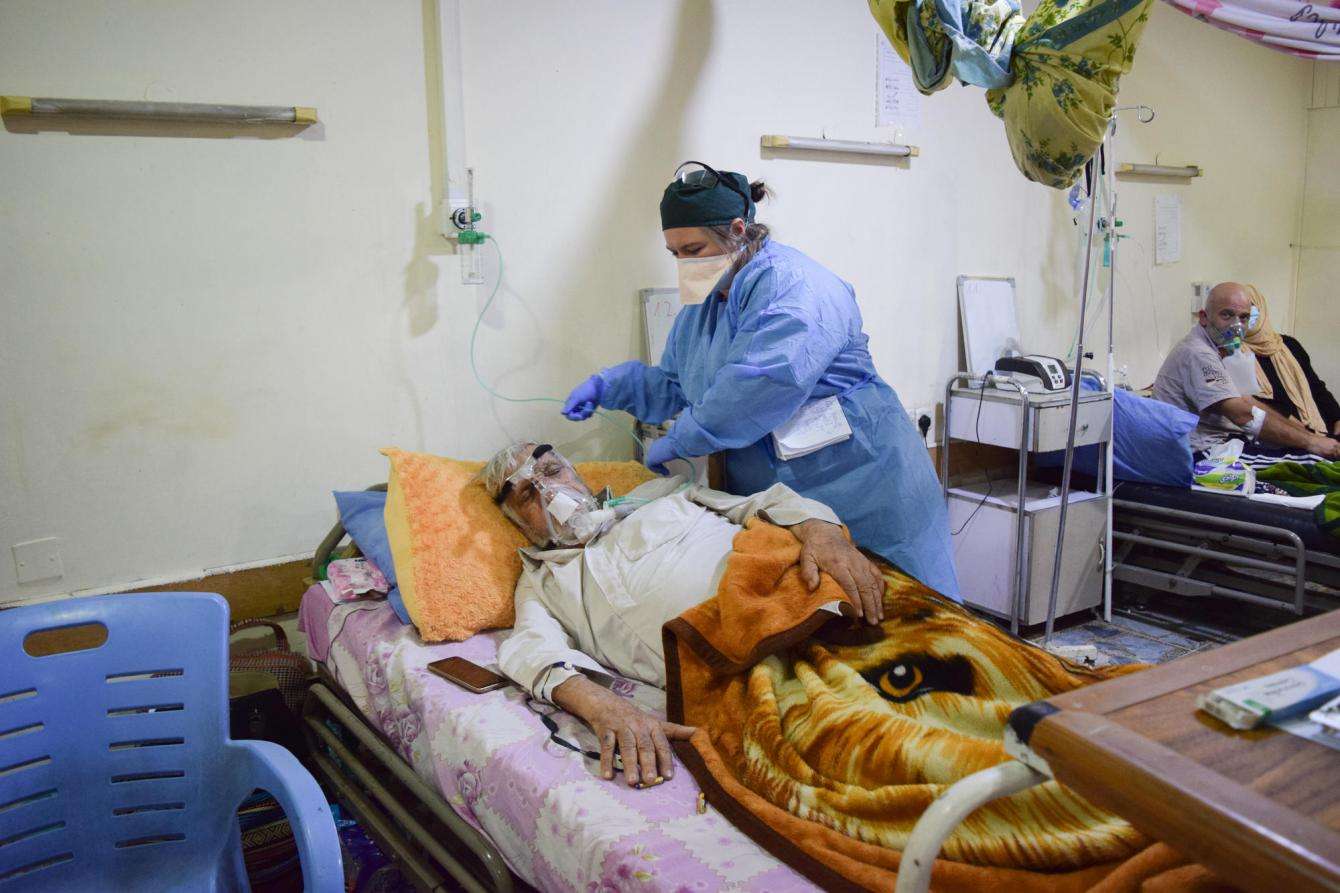
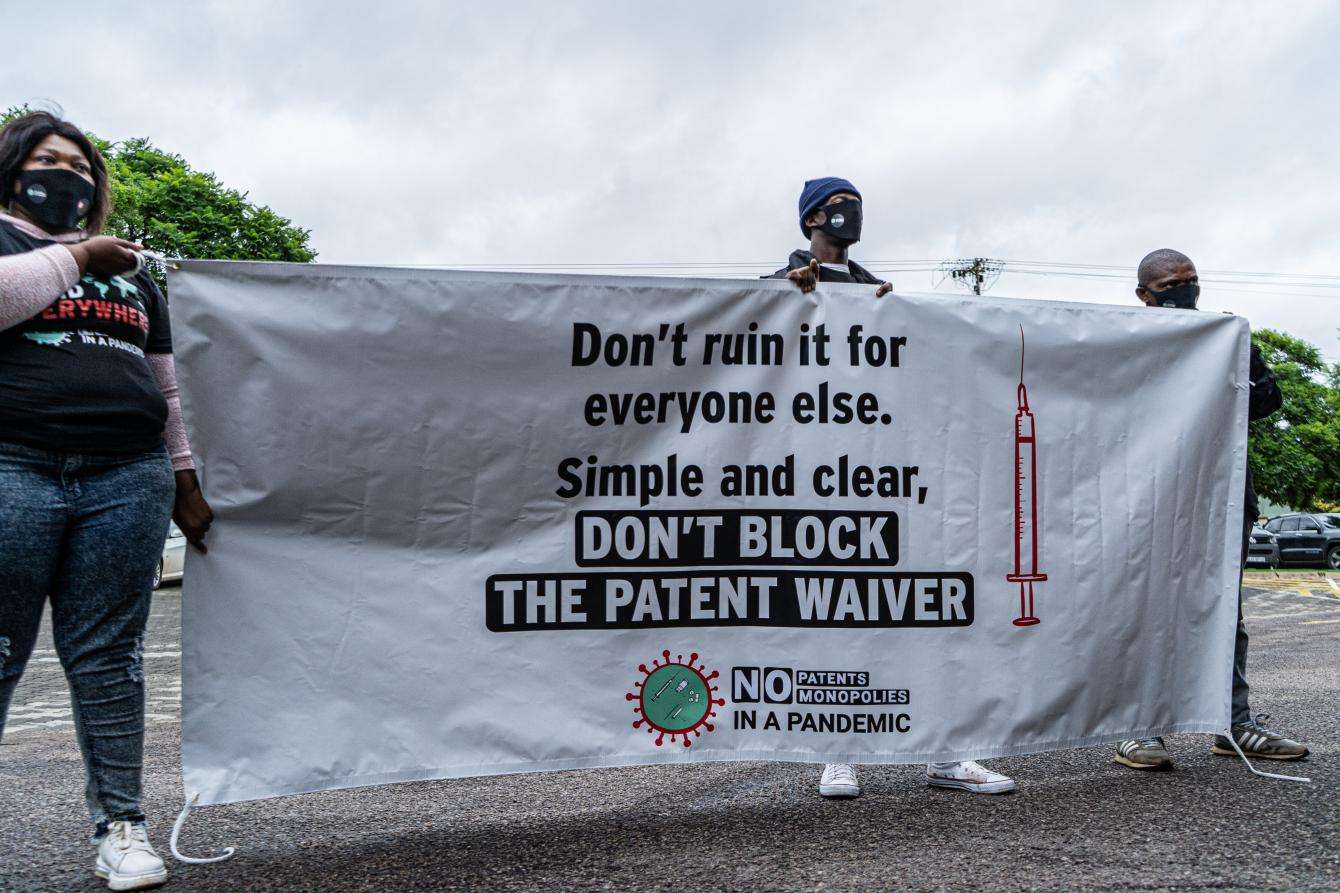
India and South Africa ask the World Trade Organization (WTO) to consider a waiver request that would enable countries to not grant or enforce patents and other intellectual property related to COVID-19 drugs, vaccines, and tests during the pandemic. MSF calls on all governments to support this request, which is being blocked by some of the world’s richest countries—including the United States.
October 23, 2020: US operations end
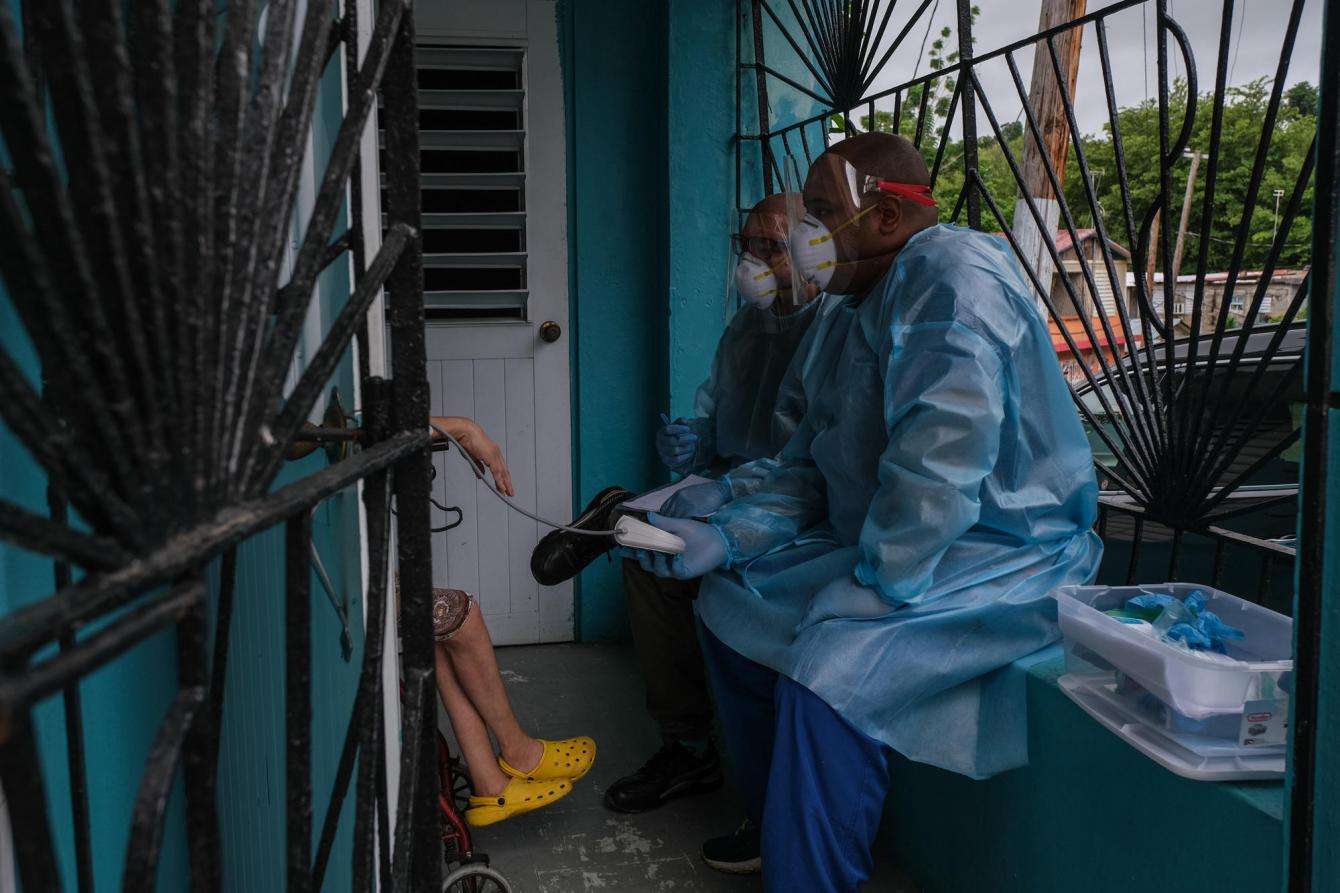
MSF announces the end of its COVID-19 response in the US, handing over its medical activities in Puerto Rico to a newly formed organization: Puerto Rico Salud. The organization, founded by Puerto Rican staff who were part of the MSF project team, will continue to offer home-based care and COVID-19 monitoring for people isolated at home.
December 8, 2020: COVID vaccines for all

As the US Food and Drug Administration considers emergency use authorization of Pfizer/BioNTech and Moderna’s COVID-19 vaccine candidates, MSF calls for a global approach to ensure that all people can benefit from these medical breakthroughs. This means sharing intellectual property, technologies, data, and knowledge so that more companies can produce the lifesaving vaccines needed to end the pandemic.
December 18, 2020: South African variant spreads
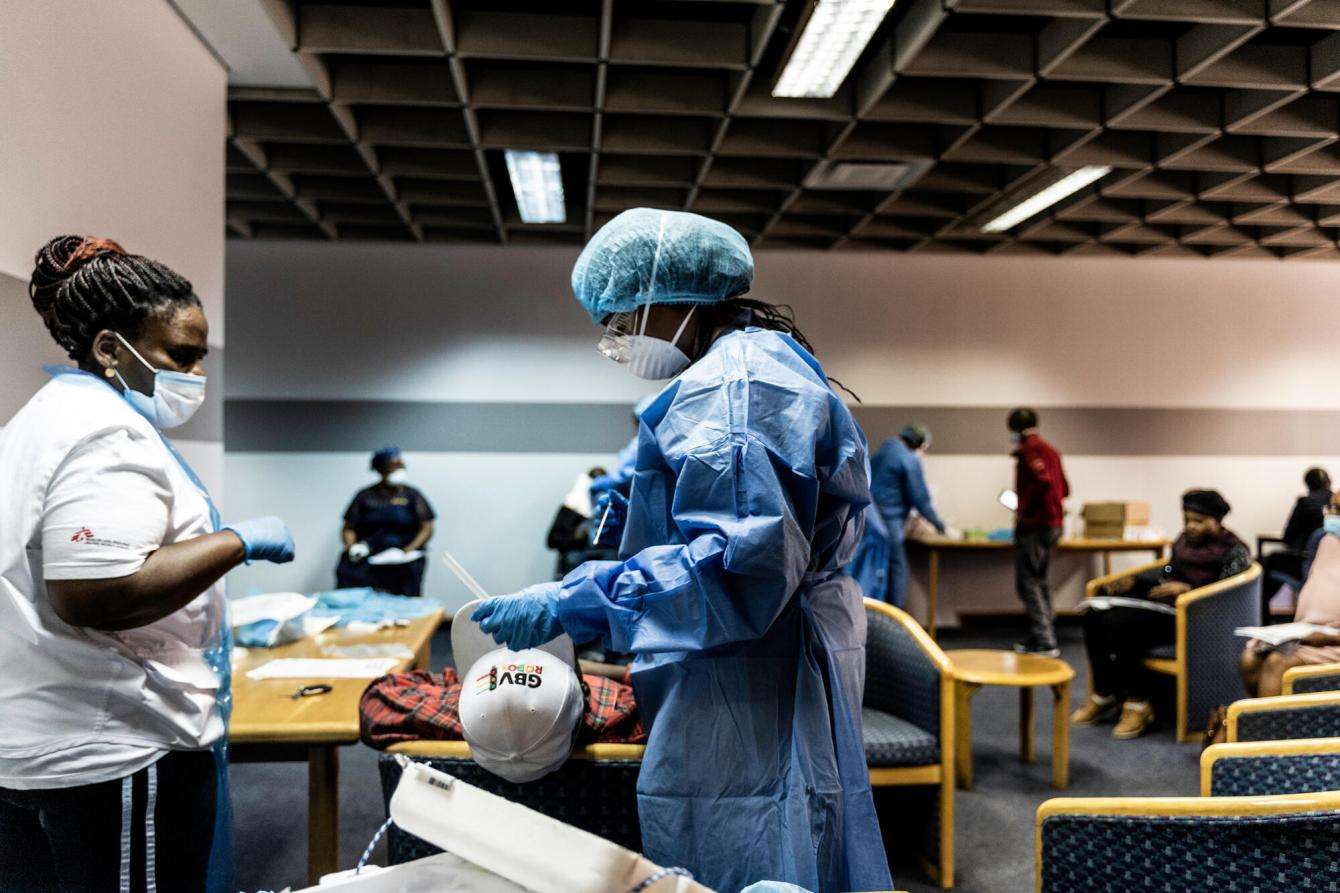
South Africa reports the rapid spread of a new variant of the virus that causes COVID-19: identified as 501Y.V2. Two months later, MSF sees the widening impact, as health workers in Mozambique, Eswatini, and Malawi struggle to treat increasing numbers of patients with little hope of receiving a vaccine to protect themselves or others from the virus. In February, MSF demands these countries get access to the right vaccines, right away.
January 25, 2021: US migration policies and COVID-19
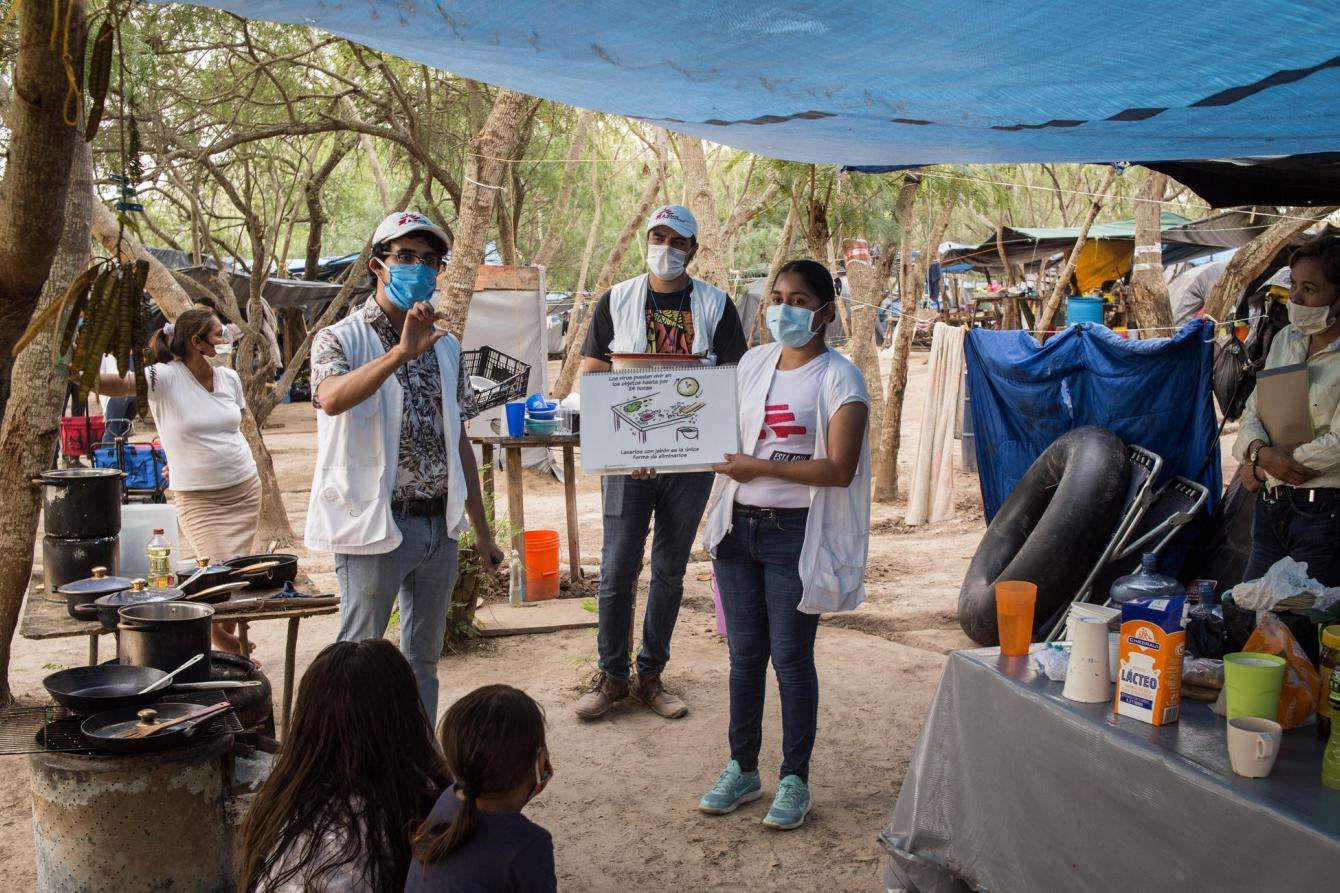
MSF calls on the new US administration to roll back harmful migration policies, including to rescind an order issued under Title 42 that uses COVID-19 as a pretext to effectively shut the border to asylum seekers. This order, first instituted in March 2020, has led to the expulsion of more than 390,000 people so far. Asylum seekers in Mexico often live in unsanitary camps or informal settlements. They face the persistent threat of violence as well as the crushing mental health toll of constant risk and uncertainty.
February 12, 2021: Brazil's second wave
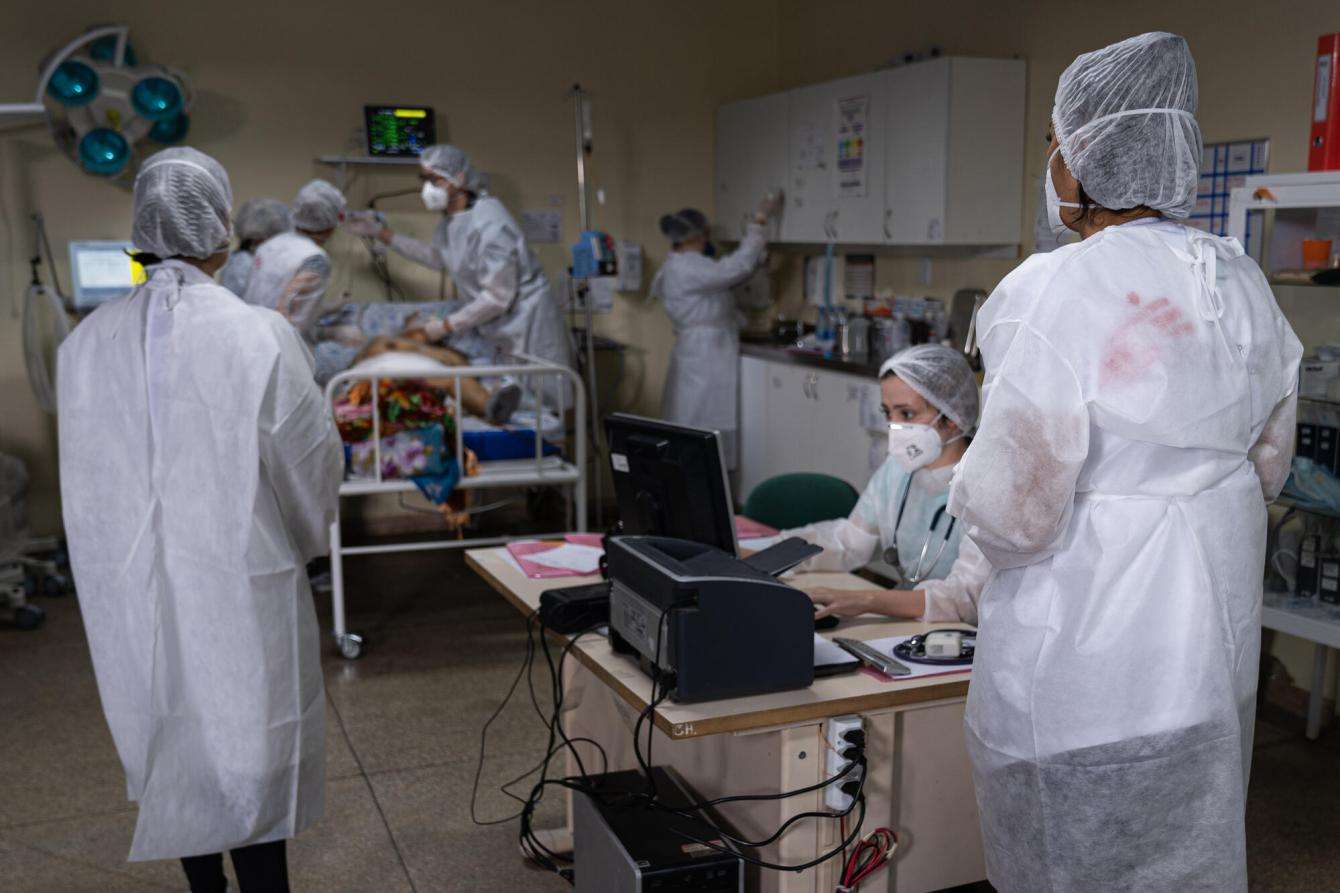
MSF warns that a second wave of COVID-19 in Brazil’s Amazon region is “catastrophic.” In the city of Manaus, all ICU beds are full, and there is no capacity to transfer people from surrounding areas. Health workers are taking emergency measures to cope with rising numbers of sick patients.
March 9, 2021: 'Stop stonewalling'
As the one-year anniversary of the pandemic approaches, MSF International President Dr. Christos Christou calls on wealthy countries to stop blocking a landmark proposal at the World Trade Organization that would help ensure global access to COVID-19 medical tools. “Countries must stop stonewalling and show the leadership required,” he says.
